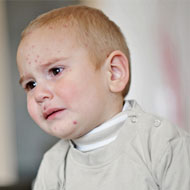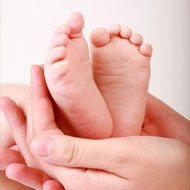- Toddler Measles Symptoms
- Toddler Flu Treatment
- Toddler Flu Symptoms
- Toddler Stomach Flu Symptoms
- Toddler Hair Loss
- Toddler Urinary Tract Infection Symptoms
- Toddler Tonsillectomy Recovery
- Toddler Periorbital Cellulitis
- Toddler Vomiting and Diarrhea
- Types of Toddler Vomiting
- Toddler Vomiting Treatment
- Toddler Cough Vomit
- Toddler Dandruff
- Toddler Bowlegs
- Toddler Eye Infection
- Toddler Pink Eye
- Toddler Pink Eye Symptoms
- Toddler Eye Problems
- Toddler Hearing Loss Signs
- Symptoms Of Pinworms In Toddlers
- Toddler Blood Infection
- Toddler Mononucleosis
- Toddler Motion Sickness
- Toddler Labial Adhesion
- Lyumphoma in Toddlers
- Toddler Scabies
- Toddler Pinworms
- Toddler Insect Bites
- Toddler Meningitis
- Toddler Moles
- Toddler Lyme Disease
- Toddler Nosebleeds
- Toddler Ingrown Toenail
- Toddler Lead Poisoning
- Toddler Hair Loss Alopecia Areata
- Toddler Heat Stroke
- Toddler Rubella
- Toddler Tonsillectomy
- Toddler Iron-Deficiency Anemia
- Toddler Tooth Discoloration
- Toddler Concussion
- Toddler Psoriasis
- Toddler Sunburn
- Toddler Tongue Blisters
- Toddler Impetigo
- Toddler Blepharitis
- Toddler Burns
- Toddler Burn Treatment
- Toddler Eczema Symptoms
- Toddler Urinary Tract Infection
- Toddler Boy Urinary Tract Infection
- Toddler Epilepsy
- Toddler Epilepsy Symptoms
- Toddler Walking Pneumonia
- Toddler Yeast Infection Symptoms
- Toddler Frostbite
- Toddler Hand Foot And Mouth Disease
- Toddler Dry Scalp
- Toddler Dry Skin
- Toddler Strep Throat
- Toddler Strep Throat Symptoms
- Toddler Sore Throat
- Toddler Mumps
- Toddler Bacterial Infection
- Shaken Baby Syndrome
- Shaken Baby Syndrome Symptoms
- Toddler Tonsillitis
- Toddler Eye Discharge
- Toddler Fifth Disease
- Toddler Febrile Seizures
- Toddler Food Poisoning
- Toddler Gingivostomatitis
- Toddler Stomach Ache
- Toddler Warts
- Toddler Tuberculosis
- Toddler Torticollis
- Toddler Tick Bites
- Toddler Ear Infection Remedies
- Toddler Ear Infection Symptoms
- Toddler Ear Infection Signs
- Toddler Concussion Signs
- Toddler Bronchitis
- Toddler Colds
- Toddler Chicken Pox
- Toddler Appendicitis
- Toddler Asthma
- Toddler Birthmarks
- Toddler Strabismus
- Toddler Wheezing
- Toddler Sprains
- Toddlers Tinea Versicolor
- Toddler Viral Infection
- Toddler Yeast Infection
- Toddler Hives
- Toddler Canker Sores
Preventing Eczema On Toddler's Face
If you live in cold, dry climates, you may have come to expect a certain redness or dryness of your toddler's skin. But sometimes, these small rashes, or patches of dry skin could be more than just a temporary condition. It could be eczema.
Eczema is a skin infection, which looks like rashes, boils or itchy, dry skin. It is a common occurrence among children and until it's proved otherwise, eczema is commonly believed to be a food allergy. It is a common occurrence among children and until it's proved otherwise, eczema is commonly believed to be a food allergy. Usually the eczema is distributed through the face, predominantly the cheeks, neck, elbow fronts, behind the ears, hands, ankles, and back of the knees.
The neck area might seem dirty. This is the result of increased pigmentation. If eczema occurs during toddlerhood, it is quite likely that this will disappear as the child grows older. Generally among toddlers and children, it is the face that is usually affected.
Causes of Toddler Eczema
With toddlers it is hard to pinpoint the exact cause of eczema. But the common problem areas include:
- Food: More often than not among babies, this is a food allergy. Commonly, food items which lead to allergic reactions include cow's milk, eggs, wheat, nuts and fish. It is of course, also likely that the toddler has developed an allergy to another food item. The easiest way to determine that is to keep a record of the toddler's diet and if you notice any rash or redness of the skin, go back to the diary and check what the child had eaten.
- Allergens: These, as the name indicates, are typical allergy reactions. In other words, most often people tend to have one or more allergic reactions to these things.
- Some common allergens are pet fur, pollen, dust-mites and heavy scented detergents like washing powder. Even if the eczema is a result of a food allergy, keeping your toddler away from the above mentioned items is advisable as these could sometimes aggravate the problem.
- Clothing material: If your toddler has dry scaly skin or even has a rash , then certain clothing materials could cause further damage, wool being one of them. Other materials include polyester, leather, and linen.
The ideal clothing material is, of course, cotton, which is why most kids' clothes are made of that material. - Heredity: If one or both the parents have suffered from eczema in their childhood then there is an 80 percent chance that the toddler will have it. But as mentioned above, usually, eczema disappears with age and your toddler should have rash free skin by the age of six.
Preventing Toddler Eczema
In the meanwhile some measures you can use to prevent or keep the eczema in check are:
- If you have a humidifier, use it as it will prevent your toddler's face from going dry. If your baby has eczema, a humidifier increases moisture in the face thus reducing the urge to itch and scratch.
- If you have access to the gel from an aloe plant, use it. The gel when applied on the inflamed skin will cause relief. Although be careful not to let the gel go into your baby's eye
- When bathing, use bath oil and avoid soap, as it makes the skin dry. Also, give your baby a bath in warm water, not hot as heat increases itchiness.
- If your toddler has eczema, you might consider slipping cotton mittens over their hands while they are asleep so they don't scratch it at night. During the day, your best hope is to distract the child from scratching.
- The idea is to keep your toddler's skin moist and prevent dryness. So you could keep your baby's moisturizing cream in the fridge and use it just before bedtime. Also, to be safe, ensure that your toddler's nails are always short and clean.
If you take the precautions it should only be a matter of time before your toddler is eczema-free.


